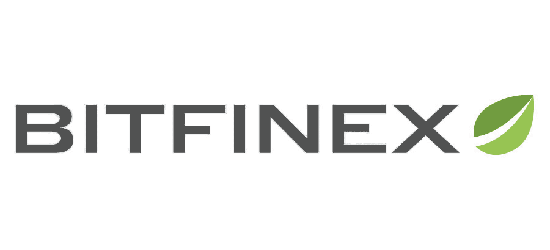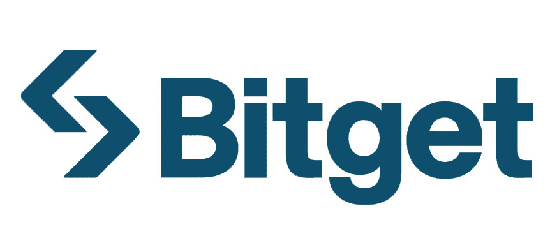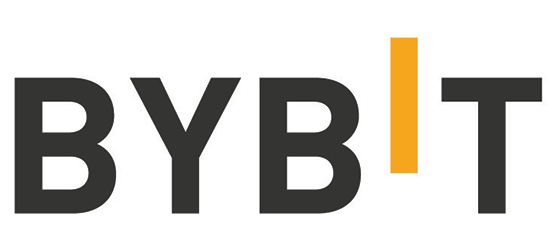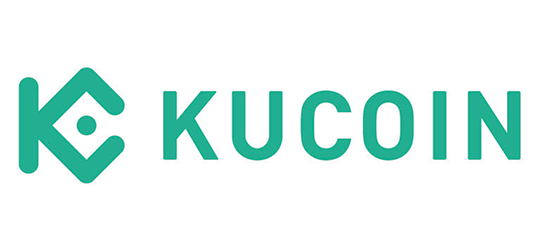
What Is a Smart Contract?
Get an in-depth understanding of smart contracts with our guide. Learn what they are, how they work, and their potential use cases. Also, Discover challenges faced by smart contracts
Not many people know the concept of smart contracts is not new. It was first introduced by Nick Szabo (An American Computer Scientist) in 1994 with the creation of first-ever virtual currency known as Bit Gold.
Since then, it has gained a lot of popularity among many industries due to its ability to reduce transaction costs by eliminating the possibility of human errors.
In this article, we will explore what smart contracts are, how they work, benefits and limitations offered by them. We will also look at potential applications of smart contracts in various industries and examine the process of creating contracts using programming languages on a blockchain platform.
What Are Smart Contracts on the Blockchain?
In simple words, it can be defined as a self-executing program or a transaction protocol that is designed to automate the execution of an agreement between two or more parties without requiring assistance from a middleman or a central authority. These self-executing computer programs also known as Smart Contracts are built on top of Blockchain technology and allow developers to develop and integrate dApps (decentralized applications) without requiring them to write code from scratch.
Smart Contracts are typically built on top of Blockchain technology. But they are not limited to it, as developers can also integrate them on other distributed ledger networks. One of the key benefits of a contract, when deployed on a blockchain network, is that it becomes immutable and can be executed without the need for intermediaries when a certain condition is met, reducing the transaction cost on the network and the potential risk of human errors.
Smart Contract Uses:
Many people are not aware of the fact that Smart Contracts can be used in various field of life apart from blockchain and the crypto industry in general.
However, there is no doubt that the Financial sector is one of the common industries where they are widely integrated as a way to ensure funds transfer, delivery of goods, insurance payments, and other complex transactions.
Some of the other Industries where Smart Contracts can be used include:
Real Estate:
Smart Contracts have the potential to revolutionalize the way we deal in the real estate industry. By streamlining and automating the entire buying and selling process, we can eliminate the need for intermediaries, including agents, lawyers, and banks. In our Traditional way of dealing in the real estate industry, we are required to hire brokers such as agents and lawyers to manage the confusing parts, including finding a buyer and paper works. While these intermediaries no doubt play a crucial role, but they often come with high fees and lengthy processing times, making the process inefficient and time-consuming.
So with Smart contracts you can eliminate the need for intermediaries, as when all parties involved in the process agree upon the terms and conditions, the contract will automatically be executed. This will also help reduce risk of fraud and increase transparency in Real Estate transactions and dealing in general.
By storing all transaction data on a blockchain network, all parties involved in the transaction can access the same information. And any changes to the data will be immediately recorded and verified. This can help to prevent fraud and ensure that all parties are aware of the transaction's progress.
Supply Chain Management:
Using Smart Contracts companies can automate supply chain management by automating and reducing the need for intermediaries by providing a higher level of trust between parties involved in the transaction. With the help of Smart contracts companies can access real-time data about their product delivery and ensure each customer has received the correct product at the appropriate time, thus minimizing the potential for errors.
Voting Systems:
Voting has and always been a critical aspect of any democratic system, and it's important to ensure that it's conducted in a transparent, secure, and reliable manner. By utilizing smart contracts using blockchain distributed ledger technology, governments can create a decentralized tamper-proof voting system to ensure transparency and prevent double voting and fraudulent activities.
HealthCare:
Smart contracts have the potential to transform the healthcare industry by improving the efficiency and security of patient data management. For example, in the case of clinical trials, smart contracts can automate the process of gathering and analyzing patient data. This can save a significant amount of time and reduce the risk of human error in data entry and analysis. Additionally, smart contracts can help to ensure patient privacy and security by allowing for the secure and decentralized storage of medical records.
These are some prime examples, but Smart contracts are not limited to these. They can be used in many more industries like Legal Services, Digital identity verification, Energy Management, and many more.
Smart Contract Pros and Cons
With tons of use cases, as explained previously, Smart Contracts have not only advantages but also some Cons as well. In order to make it easy for you to understand, we have below list down some of the Pros and Cons of it.
Pros:
- Help lower the transaction costs
- Reduce the risk of human errors
- It can assure that no one has tempered or edited the records once recorded on the Blockchain
- Help bridge between multiple blockchain networks
- It May help facilitate borderless transactions at minimal cost and time.
- Provides a more secure way of handling digital identities
- Can help improve transparency and accountability
- More accurate tracking of supply chain management
- It can be used to automate complex tasks
Cons:
- Lack of legal recognization is some countries might lead to accessibility issues
- It is not capable of handling physical assets
- Requires specialized programming expertise to write smart contracts code
- With high usage, users might face scalability issues
How Do Smart Contracts Work?
Smart Contracts work by following the three simple terms “if/when, " and " then " written in a complex coding language on a blockchain, such as Solidity programming language. Once a transaction is executed after meeting specified criteria, it is then recorded on the Blockchain, making the transaction tamper-proof and irreversible.
In this execution process, Smart contracts offer flexibility to the participants involved by giving them full authority to create governing rules and establishing a framework for resolving disputes. After defining such rules, developers can then program smart contracts and deploy them on multiple blockchain networks. However, now because of the mass adoption of Blockchain technology in variety of businesses, many organizations now offer ready-made templates and other tools to further simplify the structure of smart contracts. This makes it easier for non-technical users to implement contracts on wider range of business transactions making it more efficient and scalable.
Smart Contracts vs. Regular Contracts
| Criteria | Smart Contracts | Regular Contracts |
| Execution method | Self-executing, automatic execution upon the fulfillment of predetermined conditions | Requires manual execution by the involved parties or a third party |
| Transparency | All transactions are recorded on the blockchain ledger and visible to all parties | Private, as only the involved parties have access to the contract |
| Flexibility | The contract can be programmed to accommodate various conditions and scenarios | The contract may need to be manually amended or renegotiated to accommodate changes |
| Control | Decentralized, not controlled by any central authority | Centralized, controlled by the involved parties or a third party |
| Trust | Trustless, as the contract is executed automatically upon the fulfillment of predetermined conditions | Trust-based, as the involved parties need to trust each other to fulfill their obligations |
| Efficiency | The contract is executed automatically and does not require manual intervention or intermediaries | May require manual intervention or the involvement of intermediaries |
| Legal Enforceability | Smart contracts may not be recognized by legal systems in all jurisdictions | Regular contracts are recognized by legal systems in most jurisdictions |
| Security | Smart contracts are secured by complex cryptographic algorithms and stored on the blockchain | May be vulnerable to fraud, manipulation, and other forms of malpractice |
An Example of a Smart Contract
One of the prime examples of Smart Contracts is its working mechanism in decentralized applications (dApps) such as Augur. For those who don’t know about Augur, it is an open-source dApp that is designed to allow users to create markets and place bets on the outcomes of upcoming events such as sports games tournaments and match predictions.
Once the parameters are set, risk-takers can place their bets by sending Ethereum to the contract's address. When the event occurs and the outcome is known, the smart contract automatically calculates the winners and distributes rewards among appropriate parties.
What Blockchain Has Smart Contracts?
So Many blockchains support Smart Contracts thanks to their versatile use cases.
Some of the popular Blockchain that Support it include:
Ethereum (Ether or ETH)
A decentralized Blockchain network developed by Vitalik Buterin in 2015, Ethereum support smart contracts and allows developers to develop and deploy decentralized applications on its network.
Polkadot (DOT)
Polkadot is another popular Blockchain network that supports Smart Contracts thanks to its NPos (Nominated Proof of Stake) Consensus algorithm.
Solana (SOL)
Built on top of the Proof-of-history consensus mechanism, Solana is compatible with Smart Contracts and allows developers to build dApps on its network.
Binance Smart Chain (BNB)
Launched in September 2020, Binance Smart Chain does also support Smart Contracts and thanks to its Proof-of-stake consensus Mechanism, it is more scalable and offers minimal transaction fees.
Conclusion
In Conclusion, we believe smart contracts represent a significant step forward to automation and streamlining the various industries' processes while reducing the need for intermediaries. With benefits like minimizing human errors, increasing efficiency, and transparency, the adoption of smart contracts will continue to rise in the future. In order to make great progress and present it as an ultimate solution, it is essential to first address drawbacks and limitations, such as the need for technical expertise, the possibility of bugs and errors in the code, and regulatory and legal challenges.
FAQ
Why are Smart Contracts important?
Smart Contracts are important because they can automate processes in different fields of life while eliminating the need for a middleman, hence reducing the cost.
What are Limitations of Smart Contracts?
Some of the limitations include the need for technical expertise, scalability issues, and the inability to handle physical assets.
What are the main challenges faced by Smart Contracts?
The main challenges faced by Smart Contracts are difficulty in updating or modifying contracts and limited support for non-blockchain platforms.
Nick Szabo Vitalik Buterin Binance Ledger

























